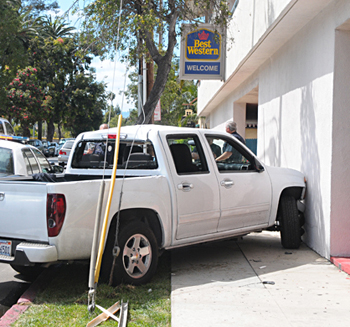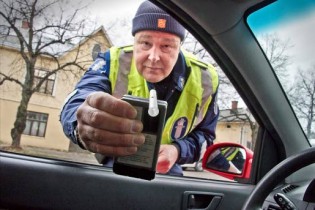
An Allegheny County program allows drunk drivers to serve mandatory jail time in a hotel if they meet certain requirements. Known to some as “
DUI Hotel“, the DUI Alternative Jail Program is essentially a 3-day, 3-night program held at two participating hotels, and costs about $500. It is for people who have a prior conviction and then get arrested for DUI, and who are ineligible for Accelerated Rehabilitative Disposition.In the program, participants are required to attend evaluations and alcohol-education programs and treatment sessions. Tom McCaffrey is the director of adult probation in Allegheny County and supports the program. He said, “The program goes Thursday through Sunday. The entire program is designed that they are busy the whole time. They complete alcohol evaluations, they do their mandatory DUI school mandated by PennDOT and they do their treatment that they have to do. I think it’s going to be a good thing for the court, I think it will be a good thing for the jail, and it will be a good thing for the taxpayers.”
DUI Hotel can replace the system of using electronic monitoring bracelets, which county officials report costs $2 million a year in taxpayer dollars. However, not everyone is behind the program. George Saurman is a former seven-term state representative from Montgomery County who said, “The whole idea of sentencing people to jail is for safety — for their own safety and for other people’s safety. For anyone to have the idea that now that they’ve been caught, they can serve out their time in a hotel, rather than having the punishment imposed, is absolutely insane. I can’t see any motivation or justification for modifying the penalty. It’s inexcusable, as far as I’m concerned.”
The program was adopted in 2010, and Allegheny was the first county in Pennsylvania to use it. Now Westmoreland County officials are considering it too.
Anna Duerr, a spokeswoman for Mothers Against Drunk Driving (MADD), said that the program would not act as a deterrent to driving while intoxicated. “There is no science to show that sentencing convicted drunk drivers to serve time in a hotel helps to stop repeat offenses,” she said.
 Wyoming is considering adopting a sobriety program for repeat drunk-drivers. Those accused of drunk driving could avoid jail time by staying sober. The 24/7 Sobriety Program is being discussed by state officials who are trying to decide if the program is the right fit. Repeat offenders would need to submit to twice-a-day breathalyzer tests while they await trial instead of going to jail.If a test is failed then they would be immediately taken into custody and their bond would be revoked. State Legislators Gov. Matt Mead and Attorney General Greg Phillips along with the Governor’s Council on Impaired Driving have been discussing the 24/7 Sobriety Program as an alternative to jail time.
Wyoming is considering adopting a sobriety program for repeat drunk-drivers. Those accused of drunk driving could avoid jail time by staying sober. The 24/7 Sobriety Program is being discussed by state officials who are trying to decide if the program is the right fit. Repeat offenders would need to submit to twice-a-day breathalyzer tests while they await trial instead of going to jail.If a test is failed then they would be immediately taken into custody and their bond would be revoked. State Legislators Gov. Matt Mead and Attorney General Greg Phillips along with the Governor’s Council on Impaired Driving have been discussing the 24/7 Sobriety Program as an alternative to jail time. Wyoming is considering adopting a sobriety program for repeat drunk-drivers. Those accused of drunk driving could avoid jail time by staying sober. The 24/7 Sobriety Program is being discussed by state officials who are trying to decide if the program is the right fit. Repeat offenders would need to submit to twice-a-day breathalyzer tests while they await trial instead of going to jail.If a test is failed then they would be immediately taken into custody and their bond would be revoked. State Legislators Gov. Matt Mead and Attorney General Greg Phillips along with the Governor’s Council on Impaired Driving have been discussing the 24/7 Sobriety Program as an alternative to jail time.
Wyoming is considering adopting a sobriety program for repeat drunk-drivers. Those accused of drunk driving could avoid jail time by staying sober. The 24/7 Sobriety Program is being discussed by state officials who are trying to decide if the program is the right fit. Repeat offenders would need to submit to twice-a-day breathalyzer tests while they await trial instead of going to jail.If a test is failed then they would be immediately taken into custody and their bond would be revoked. State Legislators Gov. Matt Mead and Attorney General Greg Phillips along with the Governor’s Council on Impaired Driving have been discussing the 24/7 Sobriety Program as an alternative to jail time. A
A  D.C. is resuming
D.C. is resuming  The non-profit organization MADD (Mothers Against Drunk Driving) is
The non-profit organization MADD (Mothers Against Drunk Driving) is  An Allegheny County program allows drunk drivers to serve mandatory jail time in a hotel if they meet certain requirements. Known to some as “
An Allegheny County program allows drunk drivers to serve mandatory jail time in a hotel if they meet certain requirements. Known to some as “ New data from the Center for Disease Control and Prevention (CDC) shows that the number of teens who drink and drive has dropped by 54% since 1991. The study examines self-reports of drinking behavior reported to Youth Risk Behavior Surveys. The study also looked at data from blood alcohol levels from teens involved in fatal crashes.The report shows that only 10.3% of high school aged students 16 or older reported drinking and driving in the previous 30 days in 2010. This is a significant drop compared to the 22.3% who reported drinking and driving in the previous 30 days in 1991.The CDC credits the drop in drunk driving among teens to the stricter zero-tolerance laws and to the raising of the legal drinking age to 21. CDC Director Thomas Frieden believes that drinking and driving is not as socially acceptable now. He said, “There is a broader recognition that drinking and driving is not O.K.,” he said.However, car crashes remain the leading cause of death among teenagers in the United States. Dr. Ruth Shults is an epidemiologist at the National Center for Injury Prevention and Control who worked with the study. She said that 1 in 5 teens who were involved in a fatal crash in 2010 had alcohol in their system.
New data from the Center for Disease Control and Prevention (CDC) shows that the number of teens who drink and drive has dropped by 54% since 1991. The study examines self-reports of drinking behavior reported to Youth Risk Behavior Surveys. The study also looked at data from blood alcohol levels from teens involved in fatal crashes.The report shows that only 10.3% of high school aged students 16 or older reported drinking and driving in the previous 30 days in 2010. This is a significant drop compared to the 22.3% who reported drinking and driving in the previous 30 days in 1991.The CDC credits the drop in drunk driving among teens to the stricter zero-tolerance laws and to the raising of the legal drinking age to 21. CDC Director Thomas Frieden believes that drinking and driving is not as socially acceptable now. He said, “There is a broader recognition that drinking and driving is not O.K.,” he said.However, car crashes remain the leading cause of death among teenagers in the United States. Dr. Ruth Shults is an epidemiologist at the National Center for Injury Prevention and Control who worked with the study. She said that 1 in 5 teens who were involved in a fatal crash in 2010 had alcohol in their system.